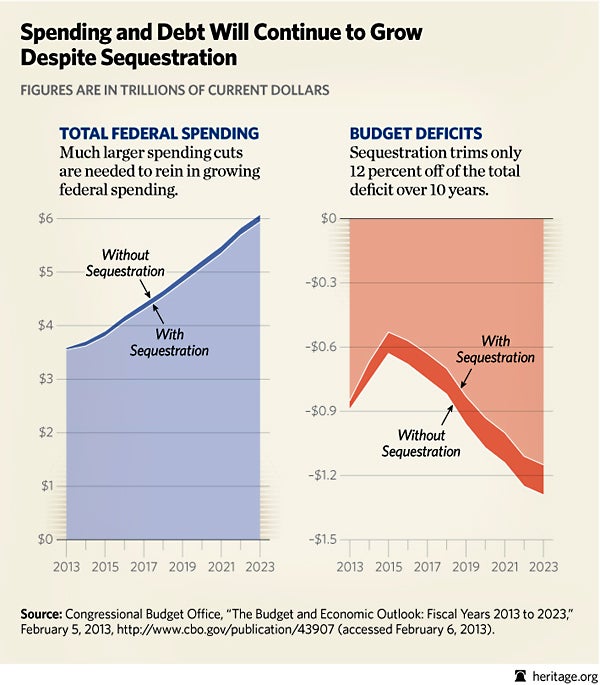Debt: Seven out of 10 Voters Think the U.S. Is on the Wrong Track
Michael Sargent /
A recent Peterson Foundation poll showed that 70 percent of registered voters believe that the country is on the wrong path when it comes to addressing the debt. This is just the latest indication that Americans are increasingly pessimistic about the nation’s financial future.
The poll, which also shows that half of Americans are pessimistic that the U.S. can reduce the national debt over the next few years, is indicative of “increasingly negative public sentiment following the government shutdown and debt ceiling brinksmanship,” according to the Peterson Foundation. This is not a surprise. Neither of these efforts made any headway to curb the debt or spending, displaying lawmakers’ indifference to the majority of Americans’ desire for fiscal restraint to be included in the debt limit deal.
The current budget committee should address current debt and future spending, which is on track to propel the deficit to new heights. As a first step, keeping discretionary spending cuts known as sequestration in place is crucial. These cuts will eliminate 12 percent of the deficit over 10 years in exchange for only a 2.5 percent reduction in spending.
To ensure full funding for the nation’s core constitutional function—national defense—Congress should save money by eliminating poorly functioning government programs.
More importantly, budget conferees should turn their attention to the biggest culprits in driving the debt: entitlements. As the three main entitlements—Medicare, Medicaid, and Social Security—currently account for 45 percent of federal spending and are growing rapidly, they will be the main contributors to the national debt in the future.
However, the programs’ popularity makes them especially hard for lawmakers to change. As Heritage fellow Romina Boccia writes, “The need for entitlement reform is urgent and unavoidable. The longer lawmakers procrastinate, the more drastic and painful the policy reforms will be.” Reforming these programs today should be central to any plan to address our federal budget challenges seriously.
The current bipartisan budget conference is an opportunity to change course—to finally do something right. Rather than perpetuating the endless cycle of debt crises, conferees should adopt permanent solutions to curb the debt by reforming entitlements and making tough yet necessary spending cuts.
Michael Sargent is currently a member of the Young Leaders Program at The Heritage Foundation. For more information on interning at Heritage, please click here.


